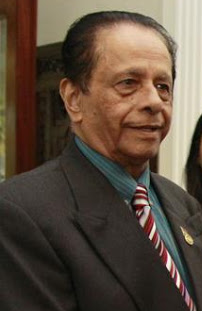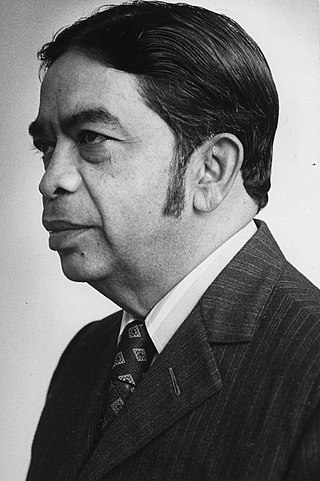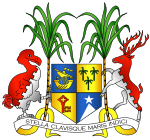
Mauritius, officially the Republic of Mauritius, is an island country in the Indian Ocean, about 2,000 kilometres off the southeastern coast of East Africa, east of Madagascar. It includes the main island, as well as Rodrigues, Agaléga, and St. Brandon. The island of Mauritius along with nearby Réunion, are part of the Mascarene Islands. The main island of Mauritius, where the population is concentrated, hosts the capital and largest city, Port Louis. The country spans 2,040 square kilometres (790 sq mi) and has an exclusive economic zone covering 2,300,000 square kilometres.
The known and sometimes formally documented history of Mauritius begins with its possible discovery by Austronesians under the Austronesian expansion from pre-Han Taiwan, circa 1500 to 1000 BC, and then by Arabs,, followed by Portuguese and its appearance on European maps in the early 16th century. Mauritius was successively colonized by the Netherlands, France and Great Britain, and became independent on 12 March 1968.

Politics of Mauritius takes place in a framework of a parliamentary democracy. The separation of powers is among the three branches of the Government of Mauritius, namely the legislative, the executive and the Judiciary, is embedded in the Constitution of Mauritius. Being a Westminster system of government, Mauritius's unicameral house of parliament officially, the National Assembly, is supreme. It elects the President and the Prime Minister. While the President is voted by a single majority of votes in the house, the Prime Minister is the MP who supports a majority in the house. The President is the Head of State while the prime minister has full executive power and is the Head of Government who is assisted by a council of Ministers. Mauritius has a multi-party system. The Economist Intelligence Unit rated Mauritius a "full democracy" in 2022.

Sir Anerood Jugnauth, GCSK, PV, was a Mauritian statesman, politician and barrister who served both as President and Prime Minister of Mauritius. He was Member of Parliament for Piton & Riviere Du Rempart. A central figure of Mauritian politics in the 1980s and 1990s, he was Leader of the Opposition from 1976 to 1982. He served four consecutive terms as prime minister from 1982 to 1995 and again from 2000 to 2003. He was then elected as President from 2003 to 2012. Following his party's victory in the 2014 general elections, he served his sixth and final term as prime minister, becoming the nation's longest serving prime minister with more than 18 years of tenure, overtaking Seewoosagur Ramgoolam, who held the office for 14 years.

Sir Seewoosagur Ramgoolam, often referred to as Chacha Ramgoolam or SSR, was a Mauritian physician, politician, and statesman. He served as the island's only chief minister, first prime minister, and fifth governor-general.

Sir Veerasamy Ringadoo, GCMG, GCSK, QC, was a Mauritian politician, minister, the sixth and last governor-general of Mauritius from 1986 to 1992, and then the first president of Mauritius from March to June 1992.
The Labour Party is a centre-left social-democratic political party in Mauritius. It is one of four main Mauritian political parties, along with the Mauritian Militant Movement (MMM), the Militant Socialist Movement (MSM) and the Parti Mauricien Social Démocrate (PMSD). As a member of the Labour Party-MMM alliance, it elected four members of parliament in the general election of 2014. The party is led by Navin Ramgoolam.

Quatre Bornes, also known as La Ville des Fleurs, is a town in Mauritius, located mainly in the Plaines Wilhems District. Its western part lies in the Rivière Noire District. The town is administered by the Municipal Council of Quatre Bornes. Situated between the towns of Beau-Bassin Rose-Hill and Vacoas-Phoenix, Quatre Bornes is linked by roads to the north, east, south and west of Mauritius. According to the census made by Statistics Mauritius in 2015, the population of the town was at 77,308.

Sir Abdool Razack Mohamed was an Indian-born former senior minister in the pre and post-independence cabinet of Mauritius.
Sookdeo Bissoondoyal was a Mauritian politician and one of the leading figures in the nation's independence movement.

General elections were held in Mauritius on 20 November 1995. The result was a landslide victory for the Labour Party-Mauritian Militant Movement alliance led by Navin Ramgoolam, which won all 60 constituency seats on Mauritius. Along with 1982, it was one of two elections in which a party won every seat. The Militant Socialist Movement (MSM) led by Anerood Jugnauth lost power after 13 years, with Jugnauth resigning two days after the results were announced. Navin Ramgoolam became Prime Minister and appointed Paul Berenger as Deputy Prime Minister.

General elections were held in Mauritius on 9 March 1959. The result was a victory for the Labour Party, which won 24 of the 40 seats. They were the first elections in Mauritius to be held with universal suffrage.

General elections were held in Mauritius on 20 December 1976. They were the first general elections to be held since independence on 12 March 1968 and came nine years after the previous elections in 1967. Although elections had been scheduled for 1972, they were cancelled by the Labour Party–Parti Mauricien Social Démocrate–Muslim Committee of Action coalition government due to political unrest. The year prior to these elections was marked by the May 1975 Students protest riots.

General elections were held in Mauritius on 11 June 1982. 360 candidates representing 22 parties contested the election, the result of which was a landslide victory for the Mauritian Militant Movement–Mauritian Socialist Party alliance, which won all 60 of the directly elected mainland seats.

General elections were held in Mauritius on 21 August 1983. The result was a victory for an alliance of the Militant Socialist Movement, the Labour Party and the Parti Mauricien Social Démocrate, which between them won 46 seats. The Militant Socialist Movement (MSM) won 32 seats, whilst the Labour Party secured nine seats and PMSD five. This alliance allowed Jugnauth to continue as Prime Minister while bringing Seewoosagur Ramgoolam and Gaetan Duval back into the government after their severe defeat in the 1982 elections. Shortly after, Ramgoolam was appointed as Governor General, Duval became Deputy Prime Minister and Satcam Boolell became Minister of Foreign Affairs. Voter turnout was 85%.

General elections were held in Mauritius on 26 and 27 August 1953. The result was a victory for the Labour Party, which won 13 of the 19 elected seats on the Legislative Council. The only other party to win seats was Ralliement Mauricien, which won only two seats. The twelve nominated members were appointed on 11 September. As had happened following the 1948 elections, the Governor-General Hilary Blood appointed twelve conservatives, largely to ensure the dominance of English and French speakers.

General elections were held in Mauritius on 30 August 1987. The result was a victory for the Alliance, composed of the Labour Party, the Mauritian Socialist Movement and the Mauritian Social Democrat Party, which won 44 of the 70 seats.
Maurice Curé (1886-1977) was one of the founders of the Labour Party in Mauritius in 1936.
Marie Louise Emilienne Rochecouste was a Mauritian politician. In 1948 she became the first woman elected to the Legislative Council, serving until 1953.
Thérèse Louise Marie Denise De Chazal was a Mauritian politician. In 1948 she became one of the first two female members of the Legislative Council, serving until 1953.









